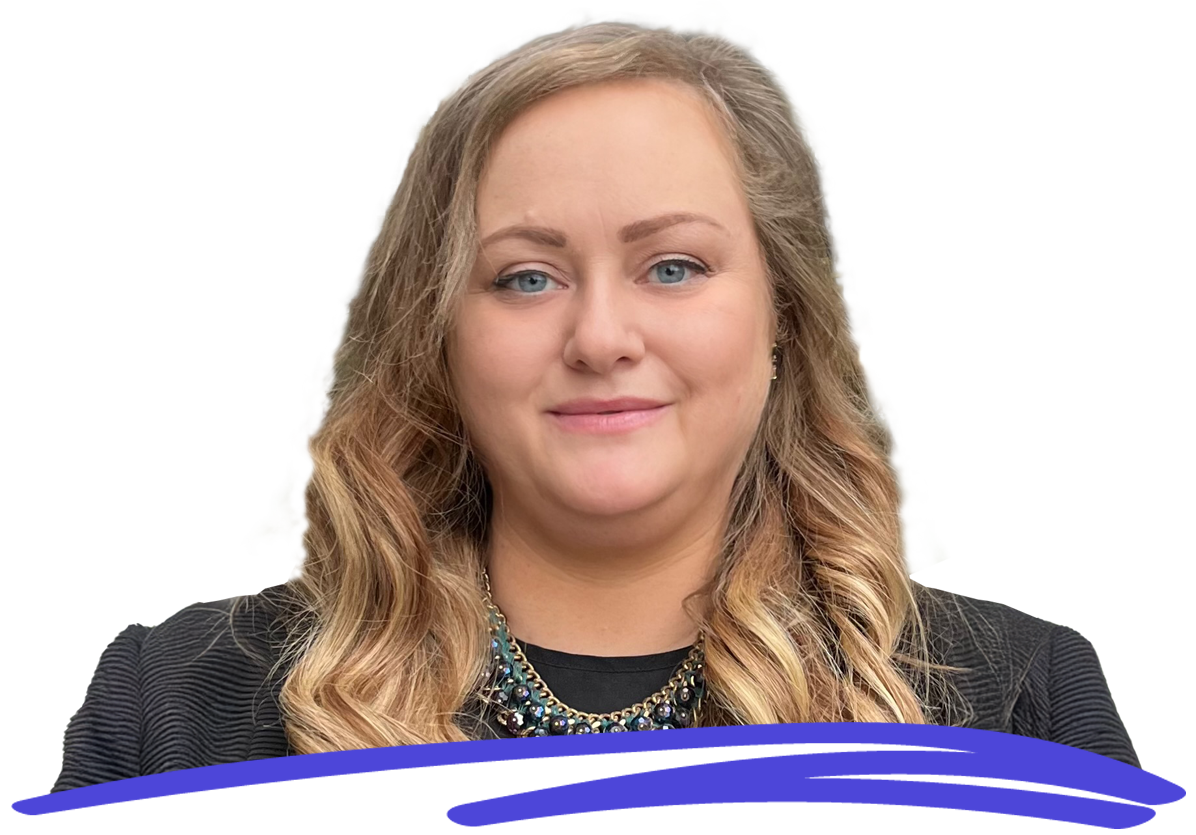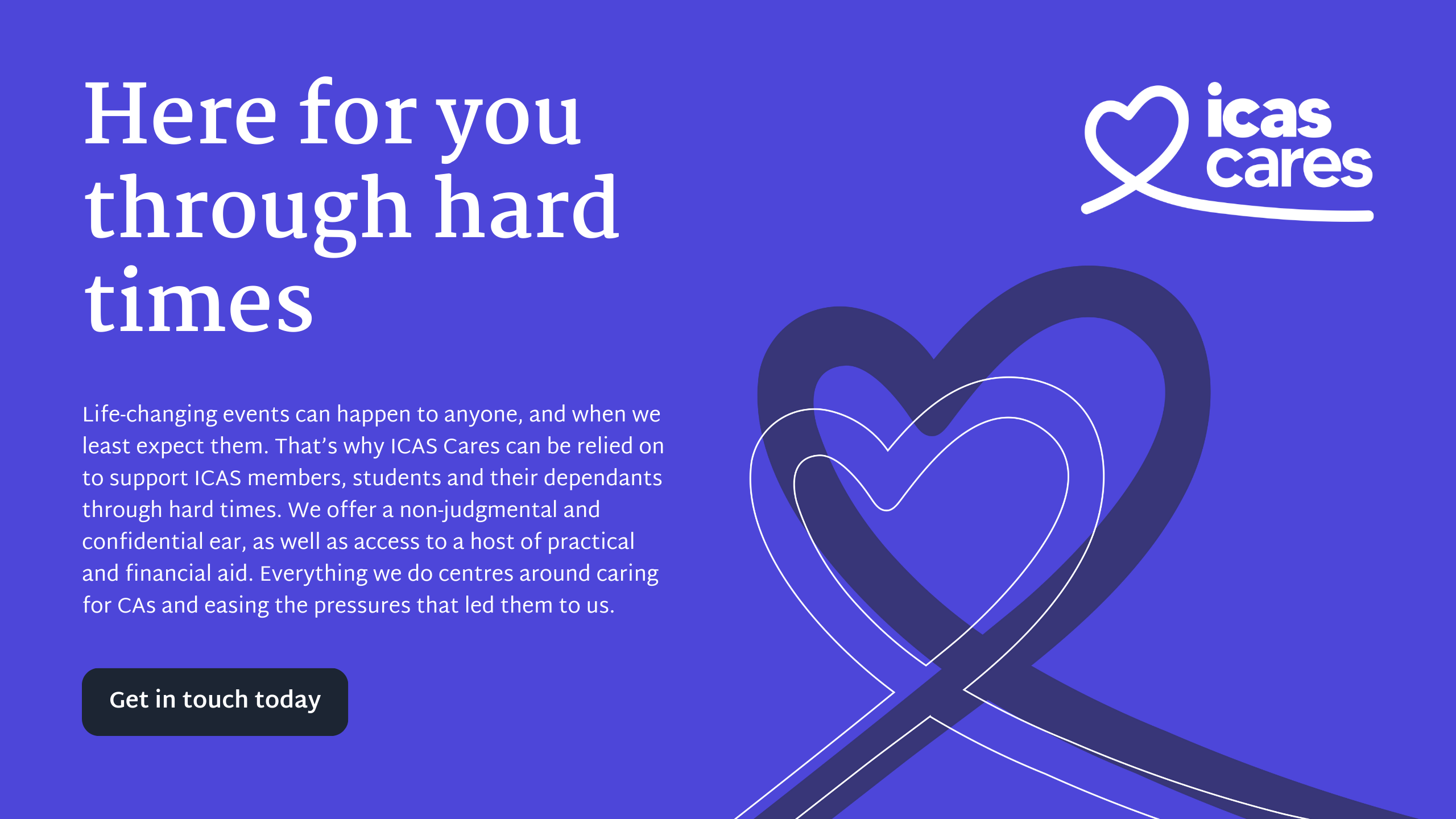People person
Since joining PwC, Fiona Gray CA has built her skillset, travelled the world and overcome her imposter syndrome. She tells Cherry Casey why the profession should appreciate ‘feminine traits’ and why your relationships are the most important investment you can make

People person
Since joining PwC, Fiona Gray CA has built her skillset, travelled the world and overcome her imposter syndrome. She tells Cherry Casey why the profession should appreciate ‘feminine traits’ and why your relationships are the most important investment you can make

Asked what first drew her to a career in accountancy, Fiona Gray CA, Director at PwC, is refreshingly frank. “The honest answer is I didn’t really know what I wanted to do,” she laughs. “I studied accounting and computer science at university, but growing up I wasn’t surrounded by people who had these sorts of professional careers, so I didn’t necessarily know what that would then lead to.”
She was, though, enticed by PwC through “its mixture of accounting, IT and sustainability”. And 20 years on, she is still captivated. “I thrive when I’ve got something new to get my teeth into. PwC keeps me learning and keeps me interested because it gives me the opportunity to do different things with my career.”
This has included travelling to some 27 countries for work; three secondments (BAE Systems in 2008, BP in 2011 and her current one as an interim Head of Internal Audit at Zurich Insurance Group), as well as a permanent move from Glasgow to London in 2016. “I happened to be supporting a team in London on a short project, and from day one the partner there suggested I join them,” says Gray. “I got a really good feel for the leadership and for the team around me, which is one of the most important things for me in terms of my career. I made the move and have zero regrets.”
Taking on one new challenge after another, however, is not something Gray would have envisaged enjoying in her younger years. “I had a very good life but a very small one, prior to starting my career,” she says. “Even through university I still lived at home and I was someone who always needed to plan things out in advance.”
But on starting her ICAS training in the early 2000s, “I didn't have that luxury anymore,” she says. “I was constantly being thrown into new situations, whether it was a new type of work, a new client or a new team.” And while it was daunting at first, she adds, “by the end of my training contract, my skillset, and with it my confidence, grew exponentially. I became someone who knew that when something different was thrown at me I’d be able to pick it up and run with it.”
While Gray’s personal skillset, ability and drive have been pivotal in forging her path to director level, the people around her have played an important role in buffering her in times of need. “The intersection of being a woman and from a working-class background definitely contribute to that imposter syndrome and self-doubt,” she says. “But I have some fantastic cheerleaders around me who I can be honest and open with, and who can just talk everything through with me.”
Indeed, openness is perhaps one of the most important aspects of Gray’s leadership style today, and one that she believes is vital if we’re to see a change in the challenges women in particular face in the workplace.
“These ‘feminine’ qualities – like increased empathy, or emotional intelligence or looking after your team – are so incredibly important”
“I’ve seen the tone from the top throughout my career, and while I appreciate we’re working on it, we’ve still got a long way to go,” she says. “Because if I look back at those [female leaders] who came before us – and this is in no way a criticism of them because they did what they had to and they forged a path for us – quite often they had to change who they were to be included; to become one of ‘the boys’.”
Traits perceived as being more typically female, she says, weren’t considered valuable in the workplace, while stereotypically masculine traits were aligned with being successful as a leader. “But these ‘feminine’ qualities – like increased empathy, or emotional intelligence or looking after your team – are so incredibly important,” says Gray. “Now is the time to recognise that it’s not about pushing those down but really valuing those skillsets, allowing women to bring all of that into the workplace.”
Honesty in ourselves then, but in our conversations too, says Gray, will make a tangible difference to women’s working lives, not least from a financial perspective. “I had never thought about the gender pensions gap until another female leader brought it to my attention,” she explains.
“I’m not married and I don’t have kids, so in terms of who I am providing for, for now it is myself. Nonetheless the pay gap means that despite having worked just as hard and having the same qualifications as my male counterparts, I’m going to end up poorer in my retirement. Well, it just doesn’t seem fair.”
Of course, says Gray, we need to “increase the pace of closing the gender pay gap exponentially” to truly tackle this problem, but in the meantime, women must be educated on this issue. “I’ve been at events where the pensions gap has been raised and we’re all sitting around just stunned, having not thought of the issues around retirement,” she says.
“People in my generation are likely seeing our baby-boomer parents not having to worry too much in terms of finances, but that’s really not the case for us when we come to retirement.”
Asked what first drew her to a career in accountancy, Fiona Gray CA, Director at PwC, is refreshingly frank. “The honest answer is I didn’t really know what I wanted to do,” she laughs. “I studied accounting and computer science at university, but growing up I wasn’t surrounded by people who had these sorts of professional careers, so I didn’t necessarily know what that would then lead to.”
She was, though, enticed by PwC through “its mixture of accounting, IT and sustainability”. And 20 years on, she is still captivated. “I thrive when I’ve got something new to get my teeth into. PwC keeps me learning and keeps me interested because it gives me the opportunity to do different things with my career.”
This has included travelling to some 27 countries for work; three secondments (BAE Systems in 2008, BP in 2011 and her current one as an interim Head of Internal Audit at Zurich Insurance Group), as well as a permanent move from Glasgow to London in 2016. “I happened to be supporting a team in London on a short project, and from day one the partner there suggested I join them,” says Gray. “I got a really good feel for the leadership and for the team around me, which is one of the most important things for me in terms of my career. I made the move and have zero regrets.”
Taking on one new challenge after another, however, is not something Gray would have envisaged enjoying in her younger years. “I had a very good life but a very small one, prior to starting my career,” she says. “Even through university I still lived at home and I was someone who always needed to plan things out in advance.”
But on starting her ICAS training in the early 2000s, “I didn't have that luxury anymore,” she says. “I was constantly being thrown into new situations, whether it was a new type of work, a new client or a new team.” And while it was daunting at first, she adds, “by the end of my training contract, my skillset, and with it my confidence, grew exponentially. I became someone who knew that when something different was thrown at me I’d be able to pick it up and run with it.”
While Gray’s personal skillset, ability and drive have been pivotal in forging her path to director level, the people around her have played an important role in buffering her in times of need. “The intersection of being a woman and from a working-class background definitely contribute to that imposter syndrome and self-doubt,” she says. “But I have some fantastic cheerleaders around me who I can be honest and open with, and who can just talk everything through with me.”
Indeed, openness is perhaps one of the most important aspects of Gray’s leadership style today, and one that she believes is vital if we’re to see a change in the challenges women in particular face in the workplace.
“These ‘feminine’ qualities – like increased empathy, or emotional intelligence or looking after your team – are so incredibly important”
“I’ve seen the tone from the top throughout my career, and while I appreciate we’re working on it, we’ve still got a long way to go,” she says. “Because if I look back at those [female leaders] who came before us – and this is in no way a criticism of them because they did what they had to and they forged a path for us – quite often they had to change who they were to be included; to become one of ‘the boys’.”
Traits perceived as being more typically female, she says, weren’t considered valuable in the workplace, while stereotypically masculine traits were aligned with being successful as a leader. “But these ‘feminine’ qualities – like increased empathy, or emotional intelligence or looking after your team – are so incredibly important,” says Gray. “Now is the time to recognise that it’s not about pushing those down but really valuing those skillsets, allowing women to bring all of that into the workplace.”
Honesty in ourselves then, but in our conversations too, says Gray, will make a tangible difference to women’s working lives, not least from a financial perspective. “I had never thought about the gender pensions gap until another female leader brought it to my attention,” she explains.
“I’m not married and I don’t have kids, so in terms of who I am providing for, for now it is myself. Nonetheless the pay gap means that despite having worked just as hard and having the same qualifications as my male counterparts, I’m going to end up poorer in my retirement. Well, it just doesn’t seem fair.”
Of course, says Gray, we need to “increase the pace of closing the gender pay gap exponentially” to truly tackle this problem, but in the meantime, women must be educated on this issue. “I’ve been at events where the pensions gap has been raised and we’re all sitting around just stunned, having not thought of the issues around retirement,” she says.
“People in my generation are likely seeing our baby-boomer parents not having to worry too much in terms of finances, but that’s really not the case for us when we come to retirement.”
Education
Studied technology and business studies with accounting
2003
Joins the Scottish Commission for the Regulation of Care as Project Administrator
2004
Trains with PwC, qualifying in 2007 and promoted to Senior Associate
2009
Made Manager in PwC’s risk assurance team in Scotland
2013
Promoted again within PwC, now Senior Manager specialising in internal audit
2019
Made Director of PwC and moves to London

Women have to plan and consider how each life stage and career move is impacting their pension pot, says Gray: “And to do that we need to talk openly about this and really normalise these stringent conversations.”
This is something Gray has promoted – and plans to continue promoting – through her leadership style: “To make sure we are bringing up these future female leaders we need to recognise and discuss everything they might be experiencing, from what may seem small things, such as other people’s behaviours, through to the more significant.”
Fiona Gray CA is also a member of the ICAS London area network
“The London area network is there to represent ICAS members and students in the UK capital and the south-east. It’s a great way to meet your peers in the region and to build broader engagement with ICAS. It’s something I’ve been doing for a few years and enjoy enormously.”
Contact the London area network at londonan@icas.com
Key to that, she adds, is having the ability to forge strong relationships – something she has finely honed through her two-decade career. “My friends and family used to think I sat in front of spreadsheets and numbers all the time, which they thought didn’t really sound like me,” she laughs. “And I have to explain that I mainly just talk to people! Most of my role, alongside problem-solving, is interacting with people, and in fact my advice to anyone in the early stages of their career is to recognise that relationships are incredibly important. They will help your career thrive, so spend time on them and invest in them.”
International Women’s Day is on 8 March. For more resources visit the ICAS EDI hub
ADVERTISEMENT








